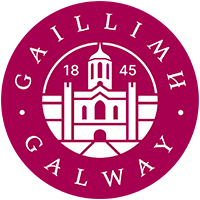Introduction
A Structured Doctoral (PhD) Scholarship is available for four years to further our understanding of how beach-dune systems may be utilised as a nature-based solution for coastal protection in the face of climate change impacts on the coast. The project is a collaboration between the discipline of Geography at NUI Galway and the newly formed government authority responsible for climate adaptation action - the Climate Action Regional Office Atlantic Seaboard North (CARO ASBN)
Context
There is a growing realisation that long-term, affordable solutions to climate change impacts in coastal ecosystems will be primarily nature-based solutions (NbS). In response to the threats of erosion, increased storm frequency and magnitude, and flooding, restoration and /or maintenance of beach-dune environments are becoming an increasingly viable solution. Natural beaches act as physical and flexible barriers to coastal storms, as well as being a living biodiverse ecosystem. Current understanding of post-storm recovery on beach-dune systems is lacking. The existing models, having been developed at sites with little human presence, are not well-suited to situations where human use is a significant consideration. For example, post-storm assessment methods currently concentrate on quantifications of sediment return to the beach and dunes in the weeks and months after an event. While this is clearly important, it does not align well with management and public perceptions of recovery: sand may have returned post-storm, but if the site does not look like it did pre-storm it has not recovered. Clearly there is a disconnect between scientific driven assessments of recovery and expectations of the public.
The Research Project
This project will examine:
- the extent of human pressures and responses to events controlling post-storm recovery pathways, and,
- the contributions of physical, biological and human components in the critical zone seaward of the foredune. The project will assess post-storm recovery by incorporating humans as a geomorphic agent.
The project will develop a conceptual model of post-storm recovery using ecological, geomorphological and human perspectives. The sites will be located in rural sites that have been severely impacted by recent storms. Existing partnerships between NUI Galway, Geography and active community groups in these locations will be utilised to develop test sites. The model will be structured around testing intervention options to enhance dune recovery versus control areas that are left to natural recovery processes. A modified DIPSR (drivers, pressures, state, impact and response model) will support the work as a common language between management and science. In the spirit of openness and engagement, regular monitoring updates will be made publicly available via a project website and other formats suitable for multiple stakeholders. Existing platforms used by the partners will facilitate this component. The successful candidate will be housed at NUI Galway, within the discipline of Geography under the supervision of Dr Kevin Lynch (Geomorphologist) and Dr Terry Morley (Ecologist). The successful candidate will be expected to apply for additional external funding opportunities
Essential Selection Criteria
- A master’s degree (with a first-class or 2:1 grade) in a relevant discipline (e.g., environmental science, conservation, botany, earth or physical sciences, or similar degree).
- Demonstrated GIS experience and data management skills with the ability to perform spatial analysis.
- Ability and experience, identifying and mapping habitats
- Experience with field monitoring and data collection.
- Full, Irish or EU driver’s license.
Desirable Selection Criteria
- Experience with GPS field surveying equipment.
- Experience in geomorphological research.
- Computer literacy in data management, data manipulation, and statistical analysis (knowledge of the R programming language preferred).
- Understanding of EU directives and policies and national legislation regarding natural areas.
- Understanding of concepts around the ‘integrated management’ of natural environments.
Closing date for applications: Tuesday, 30 Nov 2021, 5pm (GMT)
After shortlisting, interviews will take place virtually in December 2021. Studies will commence in January 2022.
TERMS AND CONDITIONS 2021/22
The College of Arts, Social Sciences, and Celtic Studies (CASSCS) at NUI Galway is pleased to offer this scholarship to support full-time PhD research within the PhD programmes of the CASSCS. The scholarships will be awarded in line with the objectives and criteria as laid out above. Applicants are advised to carefully read these Terms and Conditions in advance of submitting an application to ensure their eligibility under the Scheme. Applications that do not comply with the Terms and Conditions will be deemed ineligible.
Successful applicants to this scheme will be designated as a Galway Doctoral Research Scholar and will register in the Structured PhD programme of the CASSCS, National University of Ireland, Galway before the Scholarship can be drawn down. For further information on the programme, see here: http://www.nuigalway.ie/courses/research-postgraduate-programmes/structured-phd/history.html.

 Continue with Facebook
Continue with Facebook



